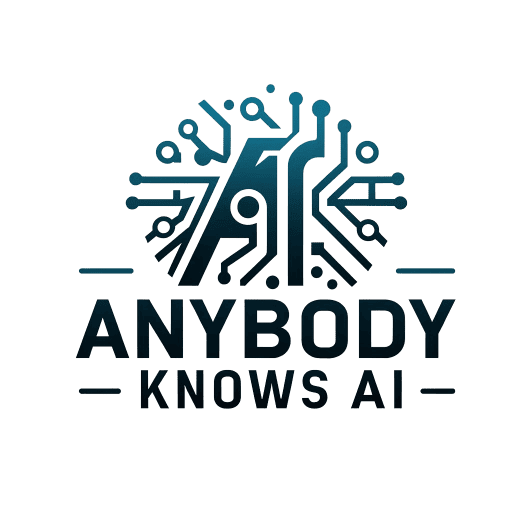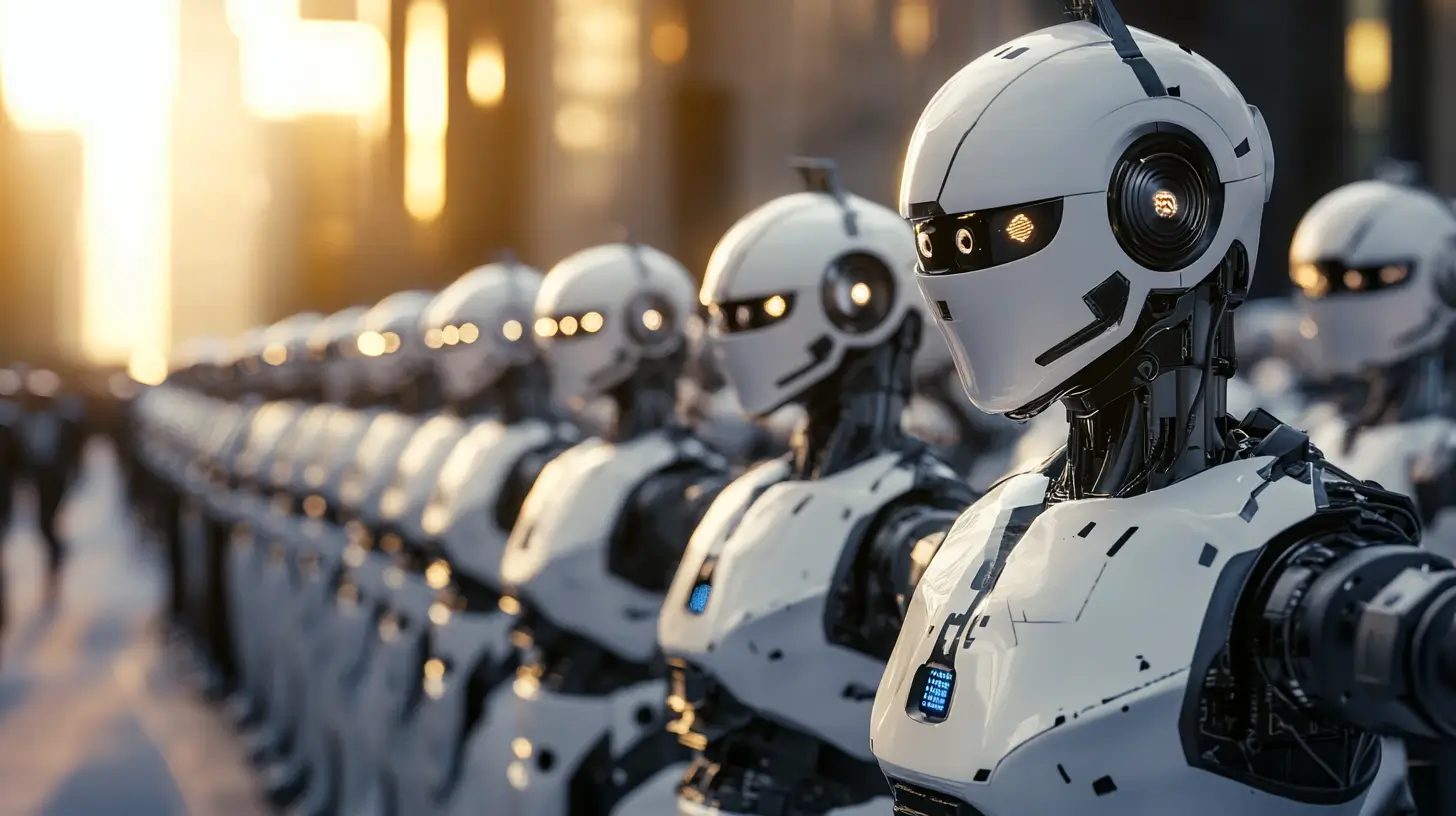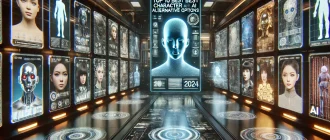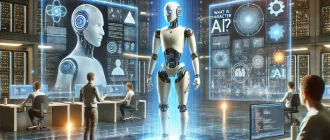Are you worried about the future? AI might be the answer. This article explores why AI will save the world by improving healthcare, transforming education, driving economic growth, and fighting climate change while addressing the AI risk associated with the potential dangers and consequences of AI technologies. Dive in to see how AI enhances our lives and potentially saves them.
Key Takeaways
- AI is set to enhance human intelligence through personalized education, revolutionizing healthcare, and accelerating scientific breakthroughs, unlocking new potential across various fields.
- Integrating AI into the economy is poised to drive job creation and economic growth by boosting productivity, increasing wages, and generating new job categories, leading to a more prosperous society.
- AI promises to address global challenges such as climate change and poverty and improve wartime strategies. Political leaders can leverage AI to maximize their potential and receive support in tackling these issues, positioning it as a powerful tool for creating a brighter and more equitable future.
Artificial Intelligence (AI) is poised to address some of humanity’s most pressing challenges. Below is a table highlighting the top reasons why AI has the potential to save the world, along with explanations and potential impacts.
| Reason | Explanation | Potential Impact |
|---|---|---|
| Healthcare Advancements | AI can analyze vast amounts of medical data to diagnose diseases earlier and more accurately and to develop personalized treatment plans. | Improved patient outcomes, reduced healthcare costs, and accelerated medical research and drug discovery. |
| Environmental Protection | AI algorithms optimize energy consumption, predict environmental changes, and manage natural resources efficiently. | Mitigation of climate change effects, conservation of ecosystems, and promotion of sustainable practices. |
| Efficient Resource Management | AI enhances supply chain logistics, reduces waste, and optimizes manufacturing processes through predictive analytics. | Increased economic efficiency, reduced environmental footprint, and sustainable use of global resources. |
| Disaster Prediction and Response | AI models predict natural disasters like earthquakes and hurricanes and coordinate efficient emergency responses. | Early warnings save lives, minimize property damage, and improve disaster preparedness and resilience. |
| Educational Enhancement | AI provides personalized learning experiences, adapting to individual student needs and learning styles through intelligent tutoring systems. | Higher educational attainment reduced learning disparities and empowered lifelong learning opportunities. |
| Agricultural Optimization | AI technologies monitor crop health, optimize irrigation, and manage pests through precision agriculture techniques. | Increased food production, reduced resource consumption, and alleviated global hunger and malnutrition. |
| Security Enhancement | AI detects cyber threats and fraud and enhances national security through advanced surveillance and threat assessment tools. | Protection of critical infrastructure, reduced crime rates, and enhanced public safety and privacy. |
| Accelerated Scientific Research | AI accelerates data analysis in research, leading to faster breakthroughs in fields like genomics, physics, and material science. | Innovative solutions to complex problems, technological advancements, and expanded scientific knowledge. |
| Accessibility Improvement | AI-powered assistive technologies help individuals with disabilities through speech recognition, computer vision, and automated assistance devices. | Increased independence, improved quality of life, and greater social inclusion for people with disabilities. |
| Space Exploration | AI assists in autonomous navigation, data analysis, and mission planning for space exploration and potential colonization efforts. | Discovery of new resources, expanded human presence in space, and deeper understanding of the universe. |
By leveraging these capabilities, AI promises to solve existing problems and open up new possibilities for a better future.
Elevating Human Intelligence
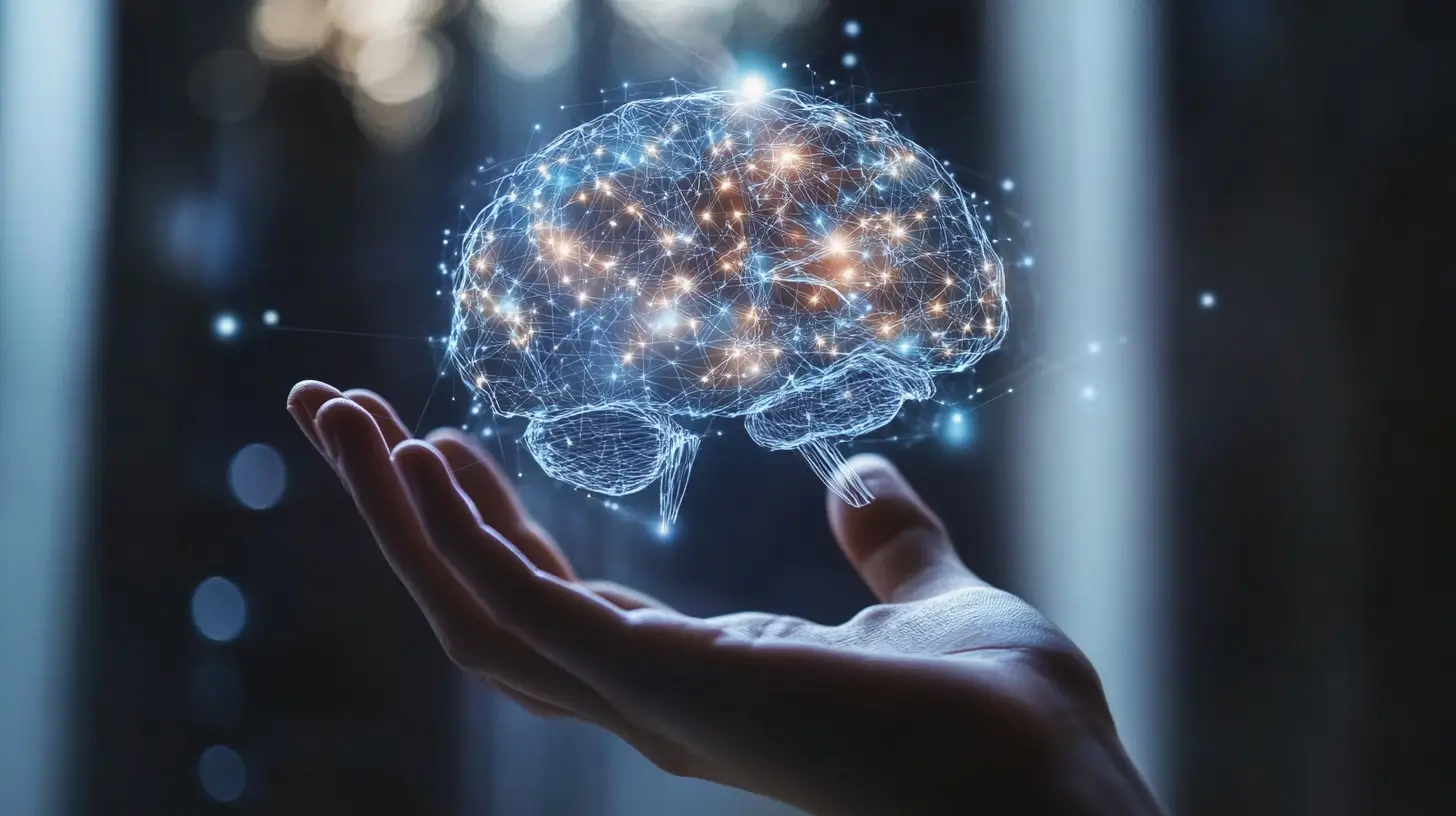
AI’s ability to process and generate knowledge is akin to a digital brain, augmenting artificial and natural intelligence today in ways we could only dream of. Since the first scientific paper on neural networks was published in 1943, AI has made remarkable strides, with recent advancements like Open AI’s GPT-4 showcasing its immense capabilities. AI has the potential to raise living standards exponentially, much like human intelligence has done over the past 4,000 years. Imagine a future where AI and human intelligence work together, unlocking new creativity, problem-solving, and innovation levels. The folks at Pessimists Archive document technology-driven moral panic and technology-driven moral panics throughout history, highlighting the contrast between legitimate concerns and irrational hysteria around new technologies.
Integrating AI into various fields is not just about making tasks easier; it’s about profoundly augmenting human intelligence and pushing the boundaries of what we can achieve. From enhancing education to revolutionizing healthcare and accelerating scientific breakthroughs, AI is set to elevate human potential to unprecedented heights.
Enhancing Education
Education is the cornerstone of human potential, and AI is transforming it in once unimaginable ways. AI-driven tools can personalize learning experiences, tailor educational content to individual learning styles, and make education more inclusive and effective. Students who struggle with traditional teaching methods can now receive customized support catering to their unique needs.
The accessibility of quality education is a significant challenge, especially in underprivileged regions. AI technologies can facilitate better access to education through virtual learning systems, breaking down geographical barriers and providing opportunities for all. This democratizes education and ensures more people can develop the skills needed for future jobs.
AI’s role in education doesn’t stop at personalization and accessibility; it also fosters creativity and critical thinking. By providing instant feedback and adaptive learning paths, AI helps students develop a deeper understanding of subjects, ultimately leading to better outcomes and unlocking their full potential. This transformation in education is a crucial step towards a future where AI profoundly augments human intelligence.
Revolutionizing Healthcare
Healthcare is another domain where AI is making significant strides. The ability of AI to analyze large datasets and build models of cellular functions is revolutionizing patient diagnostics and treatment. By identifying complex data patterns, AI can diagnose diseases earlier and more accurately, leading to better health outcomes.
One of the biggest challenges in drug discovery is the high cost and the need to try many ineffective options before finding a successful treatment. AI addresses this by quickly processing large amounts of biological data, significantly speeding up the discovery of new medicines. This not only reduces costs but also brings life-saving drugs to market faster.
AI’s contributions to healthcare are not limited to diagnostics and drug discovery. By enhancing our understanding of diseases and improving treatment plans, AI is set to revolutionize healthcare, making it more efficient and effective. This transformation will lead to scientific breakthroughs that can improve the quality of life for millions of people worldwide.
Accelerating Scientific Breakthroughs
The pace at which AI can analyze vast datasets is driving scientific research forward at an unprecedented speed. AI acts as a catalyst in fields where data is abundant but time-consuming to process, accelerating discoveries and innovations. This rapid analysis capability is particularly beneficial in discovering new medicines, where AI can process complex biological data much faster than traditional methods.
AI’s enhanced research capabilities improve patients’ physical health outcomes by enabling more precise and personalized treatments. This means treatments can be tailored to individual needs instead of a one-size-fits-all approach, leading to more effective healthcare solutions.
Beyond healthcare, AI’s ability to process and analyze data is transforming various scientific fields. From solving problems of climate change to achieving interstellar travel, AI is pushing the boundaries of what is possible. By profoundly augmenting human intelligence, AI is set to dramatically expand our understanding of the world and the universe, leading to scientific breakthroughs that were once the stuff of science fiction.
Economic Growth and Job Creation

AI is a tool for enhancing human intelligence and a powerful driver of economic productivity, growth, and job creation. By boosting productivity and enabling workers to focus on more strategic and creative tasks, AI has the potential to generate trillions in economic contributions. This combination of enhanced economic productivity and growth will support increased job creation and higher wages, leading to a more prosperous society.
The integration of AI into the workforce is transforming the job market. New technologies are creating entirely new job categories that were previously unimaginable, reflecting the transformations seen in past technological advancements. This evolution creates more jobs and drives consumer welfare and economic and productivity growth in a new technology-infused market economy.
As AI continues to permeate various industries, it is expected to lead to higher wages by increasing profitability and productivity. Businesses benefiting from AI-driven efficiencies and better models will likely pass on these gains to employees, resulting in better compensation and improved living standards. This economic uplift is a testament to the positive impact of AI on society.
Boosting Productivity
One of the most significant benefits of AI is its ability to boost productivity. By handling repetitive and mundane tasks, AI frees human workers to focus on more creative and strategic roles. This shift enhances overall productivity and increases employee engagement and innovation in the workplace.
AI aids researchers in processing large datasets, enabling faster identification of trends and discoveries in scientific studies. This capability is particularly valuable in healthcare and climate science, where timely insights can lead to significant advancements and solutions.
Integrating AI in various fields is driving meaningful advancements and better outcomes. By automating tasks that were once time-consuming and labor-intensive, AI is transforming industries and paving the way for a more efficient and productive future. This productivity boost is essential for economic growth and job creation, laying the foundation for a prosperous society.
Creating New Jobs
The evolution of AI is leading to the formation of entirely new job categories that are currently unimaginable. Just as past technological advancements gave rise to new industries and professions, AI creates opportunities for roles that did not exist before. This transformation is creating more jobs and driving economic growth and innovation.
As AI continues to evolve, it is anticipated that new job categories will emerge, reflecting the dynamic nature of the job market. These new roles will require a blend of technical skills and creativity, providing opportunities for individuals to develop and grow in their careers.
Creating new AI-driven jobs is a testament to its positive economic impact. By fostering innovation and enabling the development of new industries, AI is paving the way for a future where job and wage growth are intertwined with technological advancements.
Increasing Wages
Higher profitability driven by AI can increase wages as businesses pass on productivity gains to employees. This economic uplift directly results from AI’s ability to enhance efficiency and drive job and wage growth, benefiting employers and employees.
Profit increases from AI implementation can result in higher wages and improved employee compensation and living standards. As businesses capitalize on AI-driven efficiencies, they will likely share these gains with their workforce, leading to better outcomes.
Combining job creation and wage growth driven by AI is a powerful force for economic prosperity. By enabling higher wages and creating new job opportunities, AI contributes to a more robust and dynamic economy, ultimately leading to a better quality of life for individuals and communities.
Tackling Global Challenges
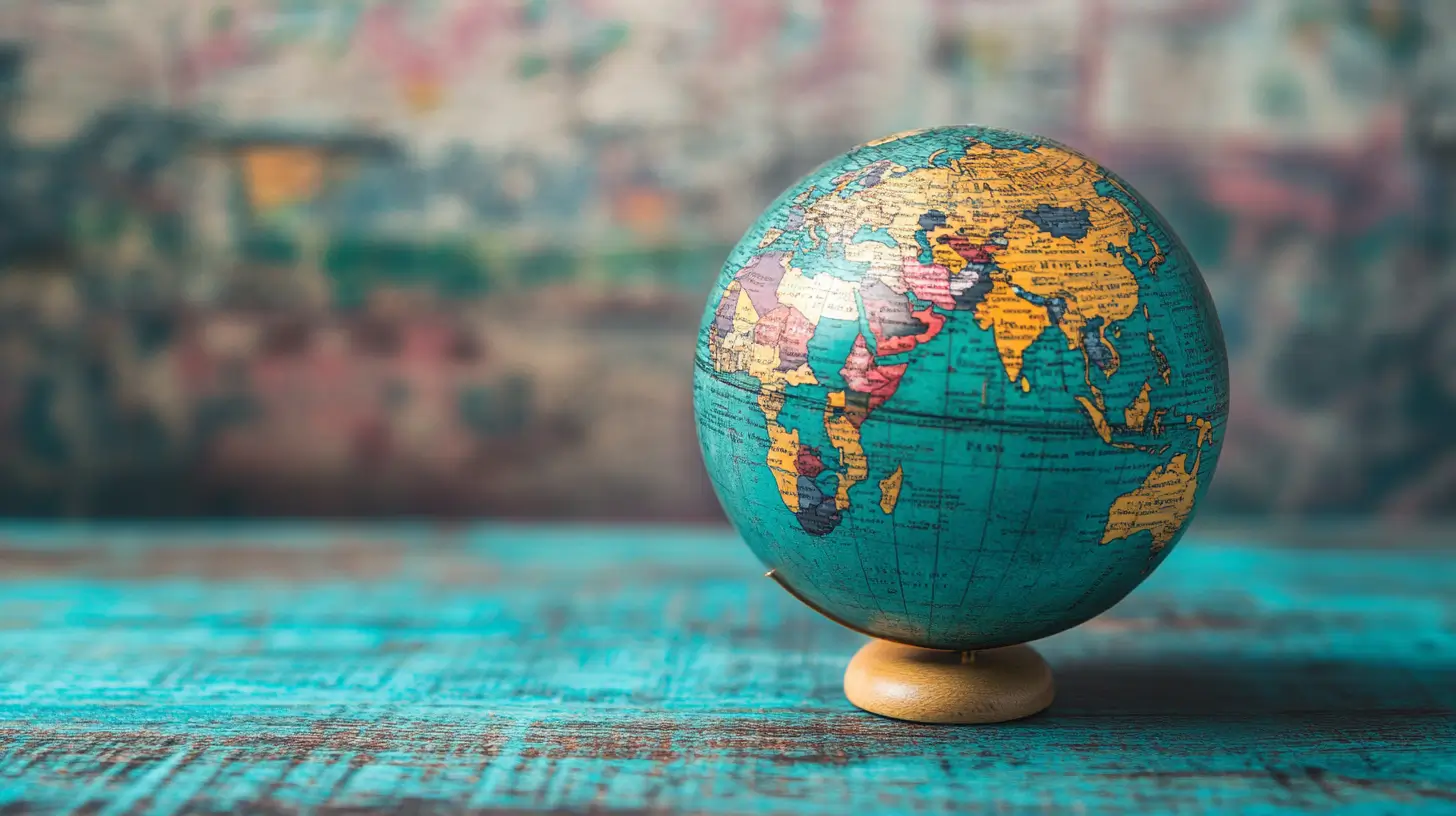
AI is not just a tool for economic growth but also a powerful ally in tackling some of the world’s most pressing global challenges. From solving climate change to reducing poverty and improving wartime strategies, AI has the potential to create a better world for all. By leveraging AI’s capabilities, we can address complex issues that have long plagued humanity, paving the way for a brighter future.
AI’s role in solving global challenges is multifaceted. It can help us think through decisions about resource management and societal governance, ultimately leading to better outcomes. Experts believe AI could help cure diseases, stabilize the climate, and halt poverty, creating a utopia of shared wealth and super productivity. This vision of the future is not just a dream but a tangible possibility with the right application of AI technologies.
As we explore AI’s potential in tackling global challenges, we will see how it can optimize energy consumption, enhance agricultural productivity, and improve military strategies. These advancements are crucial for creating a more sustainable, equitable, and secure world.
Solving Climate Change
Climate change is one of our most critical challenges, and AI plays a crucial role in addressing it. AI can optimize energy consumption, leading to reduced waste and improved efficiency. By analyzing vast amounts of data, AI can identify patterns and insights that help us solve climate change by making better energy use and conservation decisions.
AI technologies can enhance renewable energy generation and distribution, making them more effective and reliable. By integrating AI into energy systems, we can ensure that renewable resources are utilized efficiently, reducing our dependence on fossil fuels and mitigating the impact of climate change.
AI also plays a vital role in designing sustainable urban environments, ensuring efficient and eco-friendly infrastructure. By creating smart cities that optimize resource use and minimize waste, AI significantly contributes to climate stabilization and building sustainable communities.
The integration of these advancements shows how AI can help us tackle climate change head-on. By using better models and leveraging AI’s capabilities, we can create a more sustainable future and protect our planet for future generations.
Reducing Poverty
Poverty is a pervasive issue that affects millions of people worldwide, but AI has the potential to create economic opportunities and transform job markets, significantly driving consumer welfare. By providing targeted support to agricultural practices, AI can help in plant breeding and optimizing resource use, driving economic growth in impoverished regions.
AI’s ability to improve agricultural productivity is crucial for increasing food security and economic stability for impoverished communities. AI can play a pivotal role in alleviating poverty and improving living standards by enhancing crop yields and reducing resource wastage.
Increased agricultural productivity reduces poverty rates by enhancing food security and economic stability. By leveraging AI’s capabilities, we can create a more equitable world where everyone can access the resources they need to thrive.
Improving Wartime Strategies
AI revolutionizes military operations by streamlining decision-making processes and allowing forces to react faster than adversaries. AI-powered drones can conduct missions autonomously, providing surveillance and combat capabilities without direct human intervention. These advancements reduce the risk to human soldiers and increase operational efficiency.
AI-driven predictive analytics allows militaries to anticipate enemy movements and allocate resources more effectively. By analyzing vast amounts of data, AI can identify patterns and trends that inform strategic decisions, leading to better outcomes and minimizing unnecessary bloodshed.
AI technologies are essential for enhancing cybersecurity, enabling quicker detection and response to cyber threats. In an era where cyber warfare is a significant concern, AI’s capabilities in cybersecurity are vital for protecting national security and ensuring the safety of critical infrastructure.
The ethical implications of using AI in warfare highlight the need for such technologies to adhere to humanitarian laws and prevent unintended harm. As nations compete to develop AI military capabilities, international regulations are crucial for managing these advancements and ensuring they are used responsibly.
Enhancing Everyday Life
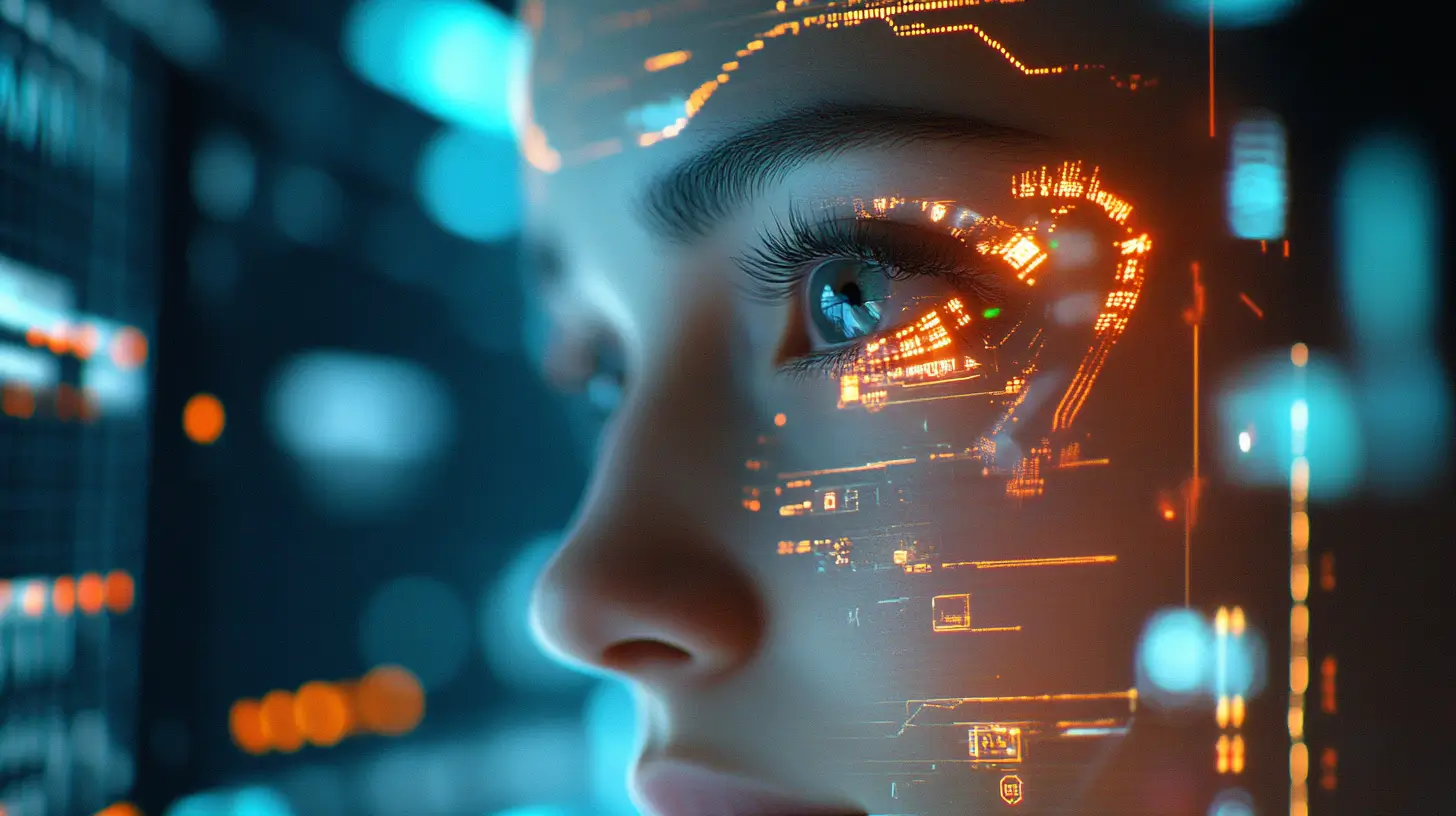
AI seamlessly integrates into our daily lives, enhancing convenience and efficiency in ways we might not even realize. From managing our schedules to optimizing our shopping experiences, AI is making everyday tasks simpler and more manageable. This integration is not just about improving efficiency; it’s about enhancing our overall quality of life and unlocking our human potential.
AI’s ability to analyze extensive datasets and provide insights helps resource management and governance. This means better decision-making processes and more effective solutions to everyday problems. Whether it’s through smart assistants, personalized services, or transportation innovations, AI is poised to transform our daily routines and improve life outcomes.
As we delve into how AI enhances everyday life, we will explore how smart assistants, personalized services, and transportation innovations significantly impact human counterparts. These advancements are not just futuristic concepts; they are already a part of our lives, driving consumer welfare and creating a golden age of technology-driven convenience.
Smart Assistants
AI-driven smart assistants like Siri and Alexa have become indispensable tools in our daily lives. These virtual assistants utilize natural language processing to understand and execute user commands, managing tasks ranging from setting reminders to controlling smart home devices. This level of automation and convenience allows us to focus on more important aspects of our lives, enhancing productivity and reducing effort.
These smart assistants are not just about convenience; they embody the potential of AI to augment human intelligence profoundly. By handling routine tasks, they free up mental bandwidth for more creative and strategic thinking. AI advisors can bridge the gap for those lacking technical skills, making new technologies accessible and user-friendly.
Integrating AI assistants into daily life is a testament to the transformative power of AI. By automating mundane tasks and providing instant access to information, these assistants are reshaping how we interact with technology and each other. This transformation indicates AI’s potential to enhance human intelligence and improve life outcomes.
As venture capitalist Marc Andreessen suggests, integrating AI into our daily routines drives a new era of consumer welfare and technological advancement. This golden age of AI-driven convenience is just the beginning, with future innovations promising even more profound impacts on our lives.
Personalized Services
AI’s ability to analyze user behavior and preferences is revolutionizing consumer experiences. By offering tailored services, AI enhances satisfaction and engagement, making shopping and content consumption more enjoyable. This personalization is not just about convenience; it’s about creating experiences that resonate with individual needs and preferences.
Businesses leverage AI to offer customized shopping recommendations and targeted advertisements, adapting to consumer preferences for improved satisfaction. Every interaction with a service or product can be tailored to the user’s unique preferences, leading to better outcomes and higher engagement.
The impact of personalized services extends beyond shopping. AI is used to customize various user experiences, from entertainment to healthcare, ensuring that services are as effective and engaging as possible. This level of personalization is a clear example of how AI enhances everyday life and drives consumer welfare.
Transportation Innovations
AI is transforming transportation through advancements in autonomous vehicles and smarter traffic management systems. These innovations aim to increase safety and efficiency in travel, making our commutes smoother and more enjoyable. By processing real-time data from their environment, autonomous vehicles are designed to navigate safely and efficiently, reducing the likelihood of accidents.
The development of autonomous vehicles is not just about cars; it’s about revolutionizing the entire transportation ecosystem. This includes real-time traffic management systems that use AI to optimize traffic flow, reduce congestion, and improve overall transportation efficiency.
These advancements in transportation are part of a broader trend of integrating AI into various aspects of our lives. By enhancing safety and efficiency, AI-driven transportation innovations are set to transform how we travel, making it more convenient and accessible for everyone.
The potential of AI in transportation extends beyond, not just cars. From smart public transit systems to innovative solutions for achieving interstellar travel, AI is pushing the boundaries of what is possible, leading not just to cars but to scientific breakthroughs and a more connected world.
The Future of Artificial Intelligence
How AI Will Shape Our World
Artificial intelligence (AI) is poised to revolutionize various aspects of our lives, from healthcare and education to transportation and energy. As AI advances, it will profoundly augment human intelligence, enabling us to solve complex problems and make better decisions. According to Marc Andreessen, AI has the potential to lead humanity to a utopia of shared wealth and super productivity.
Imagine a world where AI supercharges performance across all fields, from medicine to the arts. This technological leap will aid the development of new technologies and breakthrough scientific discoveries and usher in a golden age of creativity. With AI, we can cure diseases, stabilize the climate, and halt poverty, ultimately leading to a better life for everyone.
Integrating AI into our daily lives will transform human quality of life by enhancing our capabilities and unlocking new potential. As Marc Andreessen suggests, the future of AI is not just about automation but about profoundly augmenting human intelligence and creating a more prosperous and equitable world.
Ensuring AI Benefits Everyone
Addressing Concerns and Ensuring Fairness
Addressing concerns around AI safety, regulation, and alignment with human values is essential to ensure that AI benefits everyone. AI alignment refers to aligning AI-generated speech and thought with human values. Proponents argue that it’s crucial to engineer AI-generated speech and thoughts that benefit society.
However, opponents argue that AI alignment could lead to a new kind of authoritarian speech dictatorship and that the thought police are arrogant and presumptuous. To mitigate these risks, it’s crucial to develop AI systems that are transparent, explainable, and fair and to establish regulatory frameworks that promote accountability and responsibility.
By prioritizing AI safety and fairness, we can ensure that AI benefits everyone and leads to a more equitable and prosperous society. This involves creating AI systems that are not only powerful but also aligned with our ethical standards and societal goals. Establishing robust regulatory frameworks will help mitigate potential harms and ensure AI technologies are developed and deployed responsibly.
In conclusion, addressing concerns about AI safety, alignment, and regulation is essential for harnessing the full potential of AI. By focusing on these areas, we can create a future where AI serves the greater good, enhancing human intelligence, minimizing risk, and improving life outcomes for all.
Addressing AI Risks
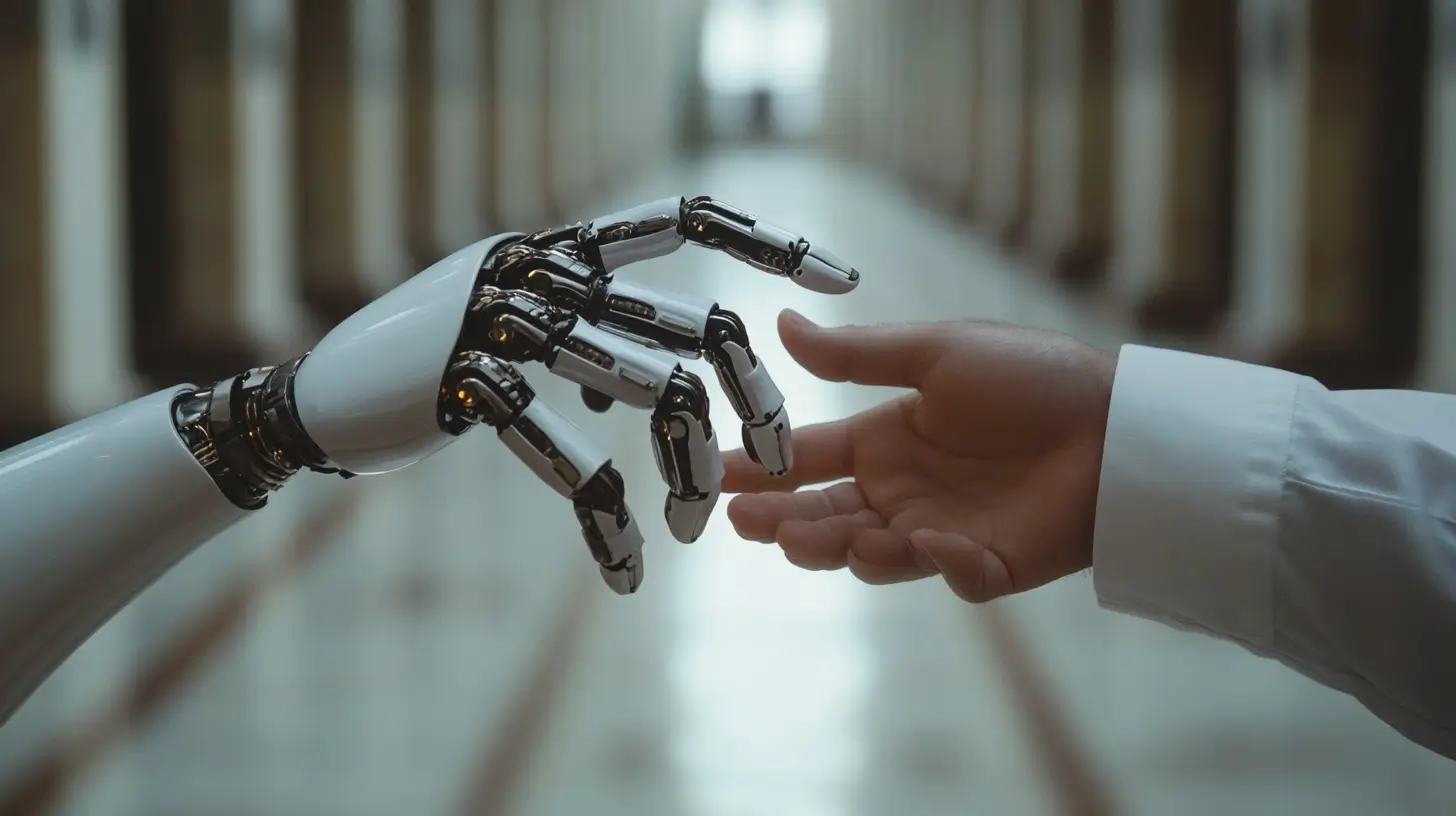
While AI holds great promise, it also poses significant risks that must be addressed to avoid detrimental outcomes. Common fears associated with AI technology include concerns that AI will kill humanity, ruin society, cause job losses, and exacerbate inequality. Though often exaggerated, these fears highlight the need for careful consideration and management of AI risks.
Misaligned AI systems pose a significant risk as they might not act according to human values and intended outcomes. This misalignment can lead to unintended consequences, making it crucial to ensure that AI systems are developed and deployed responsibly. Establishing clear AI regulations and frameworks is essential to ensure AI technologies’ responsible development and deployment.
Addressing AI risks involves technical solutions and ethical and regulatory considerations. By focusing on AI safety, alignment, and robust regulatory frameworks, we can mitigate potential harms and ensure that AI serves the greater good.
Ensuring AI Safety
Ensuring AI safety is paramount to maximizing the benefits of AI while minimizing its risks. The research field of mechanistic interpretability aims to understand how neural networks work, which is vital for ensuring AI safety. By gaining insights into the inner workings of AI systems, researchers can develop safeguards to prevent unintended behaviors.
Maximizing AI development and global technological superiority is also crucial for countering the risks associated with AI dominance. This involves advancing AI capabilities and ensuring that these advancements align with human values and ethical standards.
The conflict between Baptists and Bootleggers can lead to regulatory capture, presenting significant challenges for effective regulation. Addressing these challenges requires a balanced approach that promotes innovation while safeguarding against potential risks. By focusing on AI safety, we can create a future where AI technologies are both powerful and secure.
AI’s potential to save the world hinges on our ability to manage its risks effectively. By ensuring AI safety, we can harness its full potential for the greater good, creating a world where technology and humanity coexist harmoniously.
AI Alignment
Aligning AI systems with human values is critical to avoiding unintended consequences and enhancing societal trust. This alignment ensures that AI technologies act in ways that are consistent with our ethical standards and societal goals. By focusing on AI alignment, we can create systems that perform tasks effectively and adhere to our values.
AI alignment involves continuous monitoring and adjusting AI systems to ensure they remain aligned with human values. This process requires collaboration between AI developers, ethicists, political leaders, and policymakers to create frameworks that guide AI technologies’ responsible development and deployment.
We can mitigate risks and build societal trust in AI technologies by prioritizing AI alignment. This trust is essential for the widespread acceptance and adoption of AI, paving the way for innovations that can save the world.
Regulatory Frameworks
The rapid advancements in AI capabilities necessitate proactive and agile regulatory frameworks to mitigate potential harms. These frameworks must evolve alongside AI technologies to address emerging risks and ensure safe innovation. Without robust regulations, the potential for misuse and unintended consequences increases significantly.
Establishing clear AI regulations can help mitigate risks and promote safe innovation. These regulations should include robust safety protocols to prevent intentional and unintentional misuse of AI technologies. By creating an AI risk and regulatory environment that fosters responsible AI development, we can harness the full potential of AI for the greater good.
The absence of regulatory frameworks can lead to significant risks if left unmanaged. By proactively addressing these challenges, we can ensure that AI technologies are developed and deployed to benefit society while minimizing risk and potential harm.
Summary
Throughout this exploration of such technologies, we’ve seen how AI has the potential to save the world by profoundly augmenting human intelligence, driving economic growth, tackling global challenges, and enhancing everyday life. The advancements in AI are not just futuristic concepts; they are already transforming our world in meaningful ways.
AI’s ability to personalize education, revolutionize healthcare, and accelerate scientific breakthroughs demonstrates its capacity to elevate human potential. In the economic realm, AI boosts productivity, creates new jobs, and increases wages, contributing to a more prosperous society.
AI’s role in solving global challenges, such as climate change and poverty, showcases its potential to create a better world. By improving wartime strategies and enhancing everyday life through smart assistants, personalized services, and transportation innovations, AI is paving the way for a brighter future.
However, the journey to harness AI’s full potential requires careful consideration of its risks. Ensuring AI safety, aligning AI systems with human values, and establishing robust regulatory frameworks are essential to mitigate potential harm. By addressing these challenges, we can create a future where AI serves humanity’s best interests, inspiring us to embrace the possibilities of this transformative new technology.
Frequently Asked Questions
How does AI enhance human intelligence?
AI enhances human intelligence by offering valuable insights and personalizing learning experiences for smart people, making decision-making more efficient. With its ability to revolutionize fields like healthcare and science, AI empowers us to reach new heights in our understanding of natural intelligence and capabilities.
What impact does AI have on job creation and wages?
AI positively impacts job creation and wages by automating repetitive tasks, which enhances productivity and allows workers to engage in more creative roles. As businesses thrive, they often share these gains through higher wages and the emergence of new job categories.
How can AI help solve global challenges like climate change and poverty?
AI can significantly tackle global challenges by optimizing energy use and enhancing renewable sources to combat climate change while boosting agricultural productivity to alleviate poverty. Embracing AI solutions can lead us towards a more sustainable and equitable future!
What are the potential risks associated with AI, and how can they be mitigated?
The potential risks of AI, such as misalignment with human values and job displacement, can be effectively mitigated by implementing strong safety measures and proactive regulations. Embracing these strategies allows us to harness AI’s benefits while ensuring a positive impact on society.
How is AI enhancing everyday life?
AI enhances everyday life by simplifying tasks and providing personalized experiences through smart assistants and innovative transportation solutions. This leads to improved efficiency and a better quality of life for everyone.
